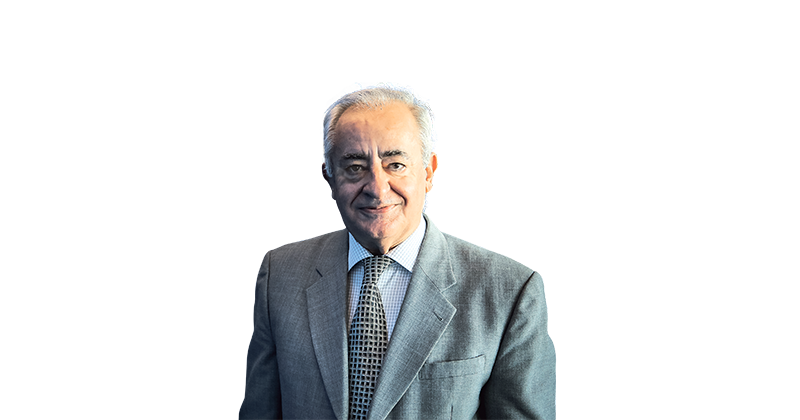Politics
Joe Biden, Middle East and Policy Coherence

After two days in Israel and the State of Palestine, the American President is now in Jeddah, Saudi Arabia. Even after reading what Joe Biden wrote in the Washington Post on July 9th trying to justify his trip, I am one of those who disagree with the political expediency of this trip. I see this as a move of simple opportunism.
In the current context of confrontation with Russia, the trip weakens those who use arguments of respect for international law, democracy and human rights. The Middle East is a problem trap with no solution in sight. A geopolitical labyrinth where, among others, the United States is lost. In the region, in addition to what has been suffered in the countries visited and in occupied Palestine, we also have the inhuman violence of the Syrian regime, with the fratricidal war that has dragged on since 2011, the barbarity of the conflict in Yemen, the chaos in Lebanon, the threat to Iran, the oppression of the Kurdish population, the fundamentalist extremism and deadly rivalry between Sunnis and Shiites. It is about working with a powder magazine that explodes depending on the interests of various local or international actors.
The visit, which does not provide any answer either to the Palestinian question, or to the obscurantism and cruelty of the Saudi regime, or to the containment of the Iranian threat, can only be noted negatively. Biden was in Israel, thinking about his country’s November midterm elections and catering to parts of his domestic electoral base. And he is in Saudi Arabia seeking to increase oil production in order to keep the price of a barrel down. It’s also an electoral issue: the cost of gas to fill up is a strong political argument in the US. But it won’t be easy to convince the Saudis, who are already adding 400,000 barrels a day more than they did in February. By the way, it should be noted that the Saudi daily production is today equivalent to the Russian one, occupying (almost ex aequo) the second place in the world.
Israel is not comparable to Saudi Arabia. But the systematic violation of Palestinian rights is one of the strongest arguments used by those who accuse the US of using a double-edged sword in international relations. The Palestinian cause has for decades been one of the most serious thorns in the throat of those who speak of the need to respect the international order and the rights of oppressed peoples. You cannot fight for this in the case of Ukraine and close your eyes when it comes to Palestine.
Saudi Arabia is a country of contradictions. Modern in terms of technology, medieval in terms of women’s rights, poor immigrant workers, or dealing with political opposition. Crown Prince Mohammed bin Salman well epitomizes these contradictions and the brutality of the regime. He will go down in history for ordering the assassination and cutting to pieces of opposition journalist Jamal Khashoggi in 2018. Joe Biden said during his campaign that this crime turned Saudi Arabia into a rogue state. Today you will shake hands with the mastermind of the killers and discuss cooperation and oil. The prince would fit perfectly in the picture, even more snooty than usual. The American president will be more vulnerable.
It is time to repeat that not everything is going well in international politics. And it should be emphasized again that faith in principles has its price. The narrative should become clearer. Political leadership is only credible if it is consistent. Wasting time thinking about the next election, political maneuvers and tricks that vary according to the interests at stake, can lead to the re-election of presidents, prime ministers and general secretaries, but does not solve big problems. The current crises in the Middle East, Eastern Europe, Sri Lanka, Pakistan or Myanmar, parts of Africa or Central America, and climate change, conservation or food insecurity and poverty alleviation should teach us to be truthful, responsible and courageous. In this time of big problems, this way of doing politics is the biggest problem.
International Security Advisor.
Former Under-Secretary-General of the United Nations

General internet buff. Hardcore music maven. Typical foodaholic. Friendly student.
Politics
The dollar continues to reflect the political scenario

Yesterday, financial agents evaluated the opposite decision of the Federal Supreme Court (STF) regarding the so-called secret budget. In addition, a decision was made by STF Minister Gilmar Méndez to issue an injunction that would exclude the Bolsa Família from the spending cap rule, with investors trying to understand how this measure would affect the processing of the transitional PEC in the Chamber of Deputies. Oh this PEC!!!!
Since he is an exchange investor, any reading that the budget will be exceeded or become more flexible will negatively affect the exchange market, whether through the PEC or in any other way. We will continue with volatility today.
Looking beyond, the US Central Bank (Fed), although slowing down the pace of monetary tightening at its December meeting, issued a tougher-than-expected statement warning that its fight against inflation was not yet over, raising fears that rising US interest rates will push the world’s largest economy into recession.
The currency market continues to react to political news. The voting on the PEC is saved for today. It is expected that it will indeed be reviewed to open the way tomorrow for discussions on the 2023 budget.
For today on the calendar we will have an index of consumer confidence in the eurozone. Good luck and good luck in business!!

General internet buff. Hardcore music maven. Typical foodaholic. Friendly student.
Politics
Andrés Sánchez consults with the Ministry of Sports, but refuses a political post.

The former president of the Corinthians dreams of working for the CBF as a national team coordinator. He was consulted shortly after Lula’s election.
Former Corinthians president Andrés Sánchez was advised to take a position in the Ministry of Sports under the administration of Lula (PT). However, he ruled out a return to politics. dreams of taking over the coordination of CBF selectionHow do you know PURPOSE.
No formal invitation was made to the former Corinthian representative, only a consultation on a portfolio opportunity with the new federal government, which will be sworn in on January 1, 2023.
Andrés was the Federal MP for São Paulo from 2015 to 2019. At that time he was elected by the Workers’ Party. However, the football manager begs to stay in the sport, ruling out the possibility of getting involved in politics again.
Andrés Sanchez’s desire is to fill the position of CBF tackle coordinator, which should become vacant after the 2022 World Cup. Juninho Paulista fulfills this function in Brazil’s top football institution.
The former president of Corinthians was in Qatar to follow the World Cup along with other figures in Brazilian football. During his time in the country, he strengthened his ties with the top leadership of the CBF.
Editors’ Choice

General internet buff. Hardcore music maven. Typical foodaholic. Friendly student.
Politics
The EU has reached a political agreement on limiting gas prices – 19.12.2022

The agreement was approved by a supermajority at a ministerial meeting of member states in Brussels, Belgium, after months of discussions about the best way to contain the rise in natural gas prices in the bloc caused by Russia’s invasion of Ukraine. .
The value set by the countries is well below the proposal made by the European Commission, the EU’s executive body, in November: 275 EUR/MWh. However, the countries leading the cap campaign were in favor of an even lower limit, around 100 EUR/MWh.
Germany, always wary of price controls, voted in favor of 180 euros, while Austria and the Netherlands, also skeptical of the cap, abstained. Hungary, the most pro-Russian country in the EU, voted against.
The instrument will enter into force on 15 February, but only if natural gas prices on the Amsterdam Stock Exchange exceed 180 euros/MWh for three consecutive days. In addition, the difference compared to a number of global benchmarks should be more than 35 euros.
Italy, the EU’s biggest supporter of the ceiling, has claimed responsibility for the measure. “This is a victory for Italy, which believed and worked for us to reach this agreement,” Environment and Energy Minister Gilberto Picetto tweeted.
“This is a victory for Italian and European citizens who demand energy security,” he added.
Currently, the gas price in Amsterdam is around 110 EUR/MWh, which is already a reflection of the agreement in Brussels – in August the figure even broke the barrier of 340 EUR/MWh.
However, Russia has already threatened to stop exports to countries that adhere to the ceiling. (ANSA).

General internet buff. Hardcore music maven. Typical foodaholic. Friendly student.
-
World4 years ago
The Gabby Petito case. Brian Landry set up camp with his family after his girlfriend disappeared
-
Top News5 years ago
Tristan Thompson reacts to Khloé Kardashian’s new appearance
-
Economy2 years ago
Everything has been delivered. 10 Bugatti Centodieci are already in the hands of the owners
-
Top News5 years ago
TLC ‘sMothered’ recap: ‘Party curled up,’ boyfriend problem
-
Top News5 years ago
Alex Cooper hosts a solo podcast
-
Top News5 years ago
2021 Ford Bronco price: Here’s how much the 2-door and 4-door cost
-
Tech5 years ago
Fall Guys is supplying out a legendary costume and Kudos as an apology present
-
Top News5 years ago
Chiara de Blasio was ‘very cold’ during the arrest of the protest: witness









